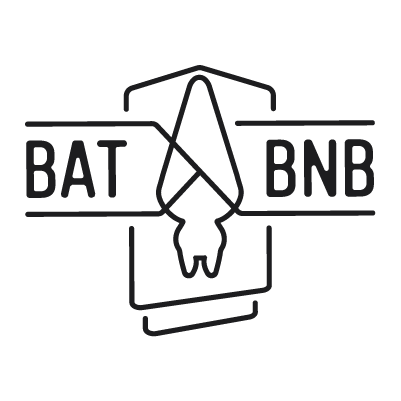Hotter Than July - Bat Rescue in the Summer
August 12 2022 – Jessica Woodend
by Kristin Tièche
It was a 100 degree day in July in Sacramento, California. My co-producer Matt Podolsky and I had planned to follow Corky Quirk on a bat rescue. Corky is the founder of NorCal Bats, a non-profit organization dedicated to the rescue, rehabilitation and release of injured and orphaned bats in Northern California.
Corky holds the second baby bat of the day
That July morning, we called Corky to find out where we would be meeting her on her rescue mission.
A parking lot in downtown Sacramento? Wait, what? I had been imagining a more typical scenario of a bat caught in someone’s attic.
According to Corky, thousands of Mexican free-tailed bats roost in the crevices of the concrete walls. This parking lot is one of her regular stops in the summer months, when pups are born and sometimes fall to the floor. Mother bats might abandon their young if they know they can’t keep them alive.
That’s where Corky comes in. She pulled up in her van and walked each floor of the parking lot. Matt and I wiped sweat from our brows and followed along with our cameras, as Corky snuck between parked cars, bending over to sift through guano to see if there were any surviving pups. Sadly, many of the baby bats Corky found were already gone, but she did find one tiny survivor.
Corky quickly gave this struggling baby some fluids and put it in a portable incubator in her van. She commented that this baby bat was very small and very dehydrated. She wasn’t too optimistic that she could help it survive, but that wouldn’t stop her from trying.
We moved onto another parking lot that was underneath an overpass. Again, I was amazed at yet another urban habitat that had become a roosting site for the Mexican free-tails. Corky inspected every parking spot for anything moving. Suddenly she spotted a baby bat crawling across the asphalt, umbilical cord still attached. This one was larger and not as dehydrated, so Corky had higher hopes. She swooped the little pup up, gave it some fluids, and placed it in her portable incubator.

Corky’s incubator.
As Corky continued on her bat rescue work, it occurred to me that this was such thankless work. Hunched over in the heat, looking for surviving orphaned bats. I asked her if she ever felt unappreciated for this volunteer work, and she responded that she does this to change public opinion. If she can rescue a struggling bat, maybe a driver won’t haphazardly encounter it when they return to their parked car. By rescuing struggling bats, she reduces the chance of people being afraid of them.
Much of Corky’s work is about education. She travels to schools and libraries to teach young and old about the many values that bats bring to our ecosystem, and that there’s no reason to fear them. Corky also educates when she conducts bat rescue at peoples’ homes, helping them understand that the presence of bats means that the surrounding ecosystem is healthy, and to prevent bats from coming into their homes, they should consider putting up a bat house.

A perfectly placed BatBnB
The next day, after that hot July afternoon, I called Corky to find out if the two Mexican free-tail pups had survived. The small one didn’t make it, but the larger one did. Corky rehabilitated it over winter, and she now plans to bring it to a flight cage so it can learn to fly. I look forward to going back to Sacramento in the coming months to film Corky releasing that rescued bat into the wild so it can rejoin its colony and have a chance at a life.

The surviving bat pup 2 months later
Kristin Tièche is the director of The Invisible Mammal, a feature documentary about bats in North America. To learn more about the film, or to make a donation, please visit: www.theinvisiblemammal.com.


0 comments